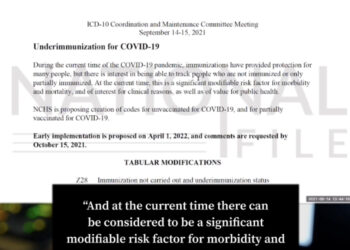Last Updated on April 3, 2022
A California “diversity” law that required publicly traded companies to hire board members from “underrepresented communities” or face stiff fines has been struck down. In response to a lawsuit brought by Judicial Watch, Judge Terry Green of Los Angeles County Superior Court found that the law violated the state’s constitution in a ruling on Friday.
The law would have required boards to hire multiple members from “several races and ethnic groups and people who identify as gay, lesbian, bisexual or transgender”, according to the New York Times.
Judge Green did not specify the reasoning for his decision. In one hearing, he described the law as “a bit arbitrary” on which groups it aimed to help, the NYT reported. The law, Assembly Bill 979, went into effect in 2020. The bill was passed and signed by Governor Jerry Brown in 2018, though current Governor Gavin Newsom hailed it as a “victory for racial justice and empowerment.”
By the end of 2022, the law would have required companies with boards of 4-9 directors to have at least two directors from minority communities, and boards with 9 or more members to have at least three minority directors. Businesses that did not comply would have faced fines of up to $100,000 dollars for first offenses and $300,000 for repeated offenses, the Associated Press reported.
About 300 of the 700 businesses that fell under the guidelines had already complied, according to the AP. No companies had been fined for noncompliance as of the ruling, however. California argued that that no taxpayer dollars had been used to enforce the measure in its Court defense.
A lawsuit was filed by Judicial Watch shortly after the measures took effect. The suit argued that “[l]aws that explicitly distinguish between individuals on racial or ethnic, sexual preference, and transgender status grounds fall within the core of the prohibition of the equal protection clause.”
California defended its corporate diversity law by arguing that the measure did not “discriminate against, or grant preferential treatment to, any individual or group on the basis of race, sex, color, ethnicity, or national origin in the operation of public employment, public education, or public contracting.”
“This historic California court decision declared unconstitutional one of the most blatant and significant attacks in the modern era on constitutional prohibitions against discrimination,” Judicial Watch President Tom Fitton said in a statement after the ruling. “In its ruling today, the court upheld the core American value of equal protection under the law. Judicial Watch’s taxpayer clients are heroes for standing up for civil rights against the Left’s pernicious efforts to undo anti-discrimination protections.”



















